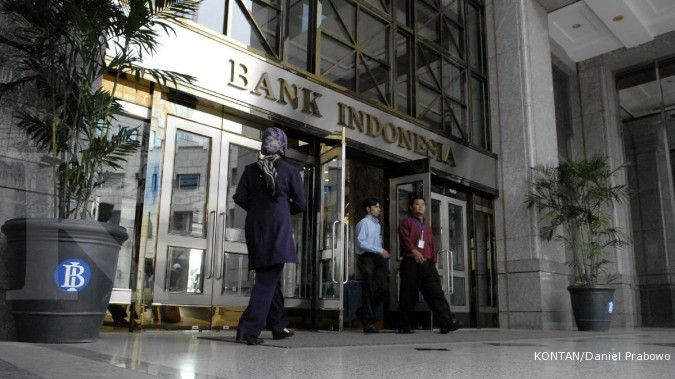JAKARTA. As the rupiah has stabilized in recent days, Bank Indonesia (BI) says it will not become complacent, citing the seasonal increase in dollar-demand that will reach its climax.
BI Governor Agus Martowardojo says the future movement of the rupiah in coming months would be influenced not only by external dynamics, such as economic developments in the US or China, but also domestic factors, notably the potential increase in dollar demand among onshore corporations.
“In Indonesia, we have a cyclical pattern between March and June when there will be a rise in foreign-debt payments and earnings repatriation,” BI Governor Agus Martowardojo told reporters on Friday.
Having taken a battering earlier this month, the rupiah has stabilized of late as foreign fund inflows returned after an easing of concerns that the US central bank would soon hike its interest rate.
On Friday, the rupiah traded at 13,064 per dollar, relatively unchanged compared to earlier this week, when it stood at 13,067 per dollar, according to the Jakarta Interbank Spot Dollar Rate (JISDOR).
Last week, the currency depreciated to 13,209 per dollar, the weakest level since the 1998 Asian financial crisis when the country recorded at least US$1 billion of fund outflows from the bonds market.
March-June high season for foreign debt payments and earnings repatriation Despite recent selling-off, BI believes RI’s financial market remains in good shape BI to intervene in the market to anchor currency stability mid-year.
“In the first two weeks this month, there has been pressure [on the rupiah] due to outflows, but we are now seeing returning inflows in the third week,” said Agus.
Despite the recent selling-off pressure, the Indonesian financial market remained in good shape as it still registered a net foreign inflow of Rp 42 trillion ($3.2 billion) year-to-date, the BI governor added.
Foreign investors have bought at least Rp 5 trillion in Indonesian government bonds in the past two weeks, Finance Ministry data shows. That has led to a stabilization in one-month volatility for the rupiah, a measure of currency swings, which dropped 27 basis points this week to 12.07 percent, Bloomberg reported.
In response to the surging dollar demand in the middle of the year, BI would intervene “significantly” in the market to ensure currency stability, Senior Deputy Governor Mirza Adityaswara said on Friday.
He said the central bank would not loosen its grip on the rupiah in an attempt to pile up its foreign exchange (forex) reserves.
Despite the depreciating rupiah, BI’s forex reserves have been on the upward trend, touching $115.5 billion by the end of March compared to $111.8 billion earlier this year, prompting suggestions that the central bank had scaled back its market intervention and had would tolerate currency depreciation.
“Some people have argued that BI did not intervene in the market because it focused on piling up its reserves,” the senior deputy governor noted.
“What’s worth highlighting here is that BI is serious in the market, is serious to guard the rupiah. We are ready to intervene if there’s any turbulence in the financial market,” stated Mirza.
Helmi Arman, the chief economist of Citibank in Indonesia, predicted the rupiah’s depreciation would have limited pass-through to imported inflation, but warned the central bank that the impact would likely be felt in consumer sentiment and economic growth.
There would be a risk that the rupiah’s depreciation could further impact household spending and exacerbate the declining growth rate of household consumption, he explained.
“Businesses can also see the cost of capacity-expansion rising as industrial machinery is mostly imported,” Helmi wrote in a research note. “Amid reduced optimism on consumption growth, some businesses may well opt to wait and see, thereby delaying their expansion plans.” (Satria Sambijantoro)
/2015/01/07/1953878878p.jpg)










